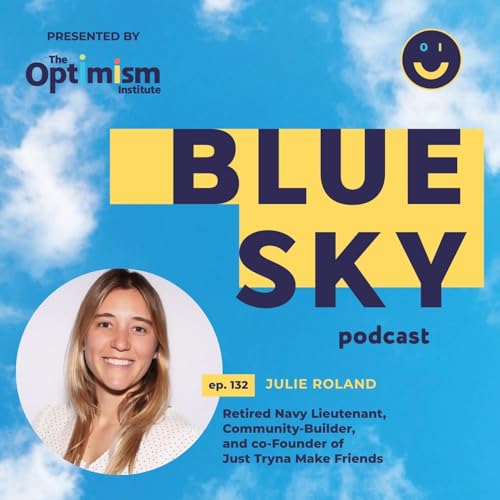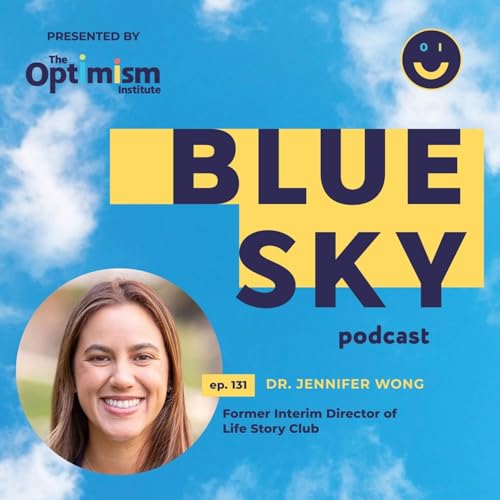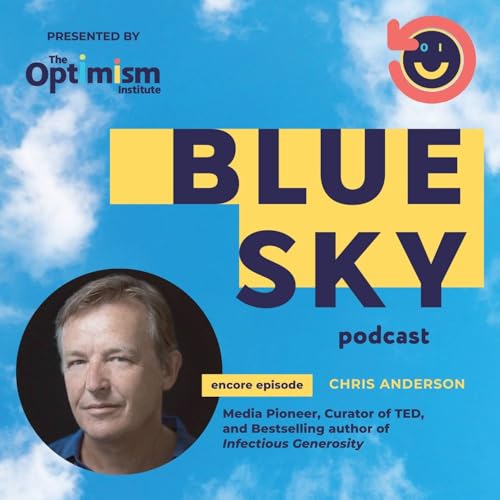Kevin Lowe has come a long way since he was seventeen years old and lost his eyesight during a medical procedure gone wrong. In this Blue Sky conversation, Kevin describes how he's rallied from this devastating event to live a life full of resilience, purpose, and optimism. This episode concludes with a surprise musical feature, courtesy of Kevin himself. 00:00 Kevin Lowe's Childhood & Early Life Kevin Lowe shares insights into his childhood in East Central Florida, highlighting a carefree upbringing centered around outdoor activities with his cousin Josh. He also opens up about his parents' divorce in second grade and the significant role his grandmother played in his life. 04:46 Loss of Sight and Other Complications Kevin recounts the discovery of a plum-sized brain tumor at 17, which, though non-cancerous, posed a life-threatening risk. He describes the traumatic surgery that led to complete blindness, loss of smell, short-term memory loss, and a permanently damaged pituitary gland. 11:02 Journey Through Grief and Despair Kevin candidly discusses the profound sadness and despair he experienced after losing his sight, describing it as being 'trapped in hell.' He reveals his nightly prayers for his sight to return and even for the courage to end his life, ultimately finding strength in his faith and family. 15:04 Perseverance and New Beginnings Kevin shares his journey of rebuilding his life, including his determination to graduate with his high school class despite his blindness. He discusses his internships in travel and radio, which eventually led him to start his own travel agency, Better Days Travel, and his pivotal realization from an audiobook to embrace life despite his challenges. 23:12 The Podcast: Grit, Grace, and Inspiration Kevin talks about how the 2020 pandemic and his sister's suggestion led him to start podcasting, a medium he quickly realized he was 'designed for.' He details his podcast, Grit, Grace, & Inspiration, which focuses on sharing stories of overcoming adversity and inspiring others, encapsulated by his tagline 'turning setbacks into stages.' 31:54 Technological Advancements and Echolocation Kevin highlights how technology, particularly the iPhone with its voiceover feature and apps like Apple's 'Be My Eyes,' has significantly improved his life. He also fascinatingly explains how he learned echolocation, a skill that allows him to perceive his surroundings through sound, giving his world shape again. 42:20 Advice and Gratitude Kevin expresses gratitude for his seventeen years of sight, which aids his interpretation of the world, despite being a 'picky blind person' about colors. He offers heartfelt advice to those facing setbacks: 'give yourself grace' and remember that 'it's going to get easier, it's going to get better.' 45:20 Blue Sky Above - A Musical Surprise The host discusses the inspiring technological advancements and echolocation techniques Kevin shared. As a special surprise, Kevin produced an original song, 'Blue Sky Above,' which is played to close the episode.
Show More
Show Less
 47 mins
47 mins Feb 11 202647 mins
Feb 11 202647 mins Feb 4 202654 mins
Feb 4 202654 mins 54 mins
54 mins 51 mins
51 mins 54 mins
54 mins 50 mins
50 mins 42 mins
42 mins
